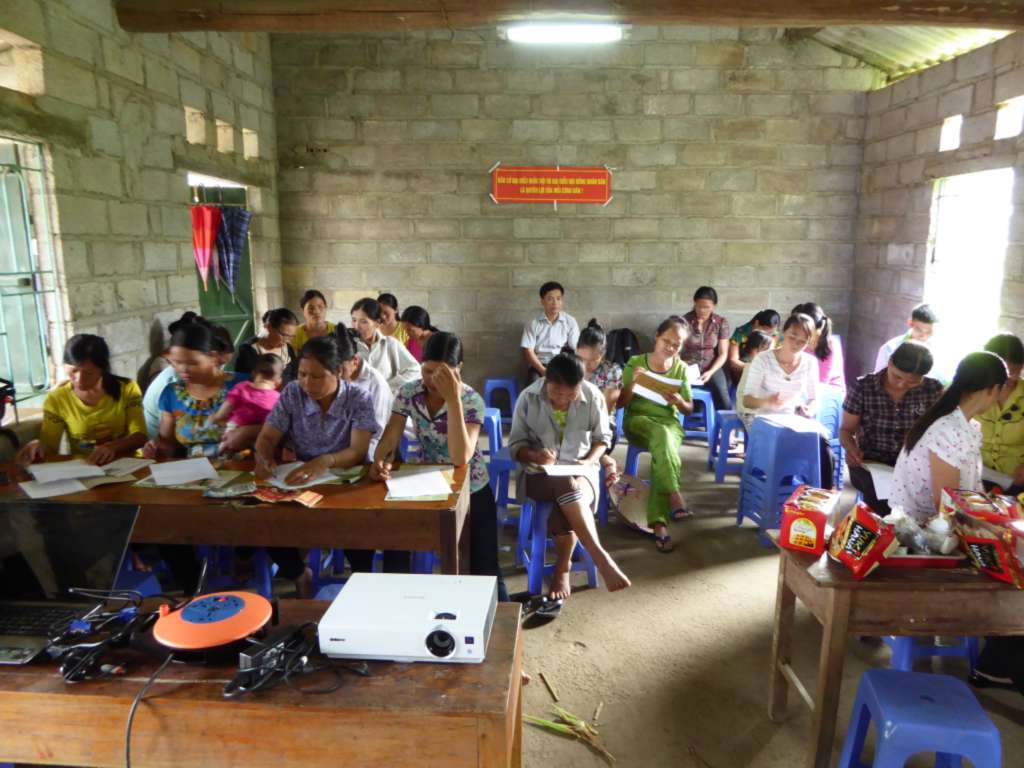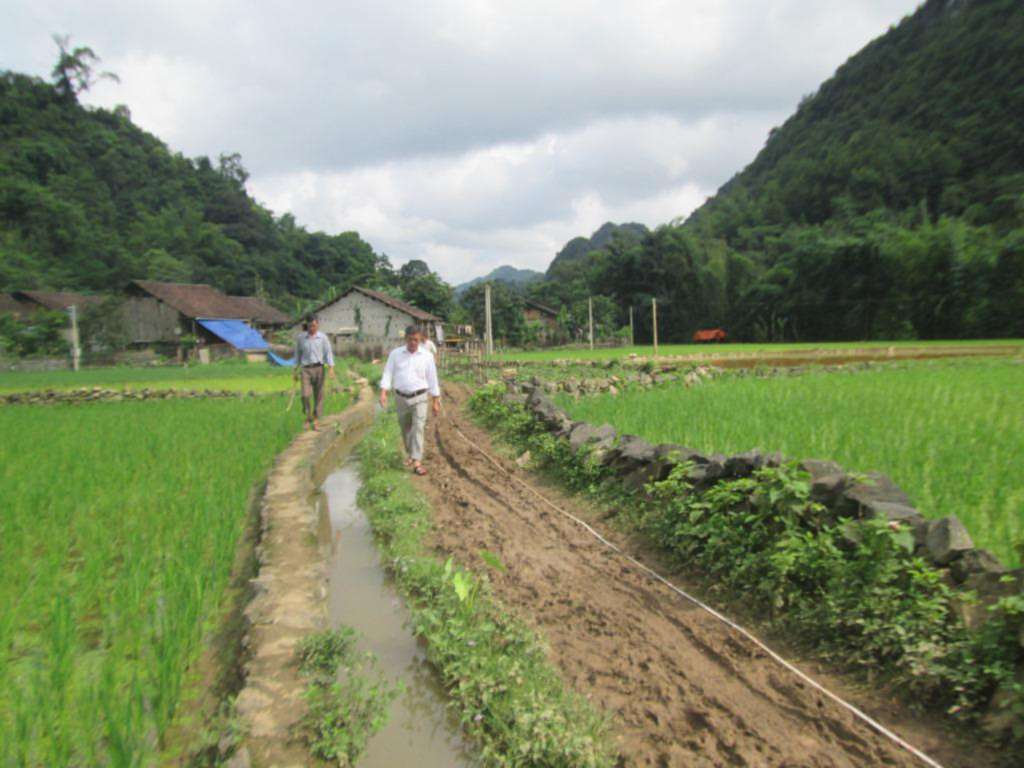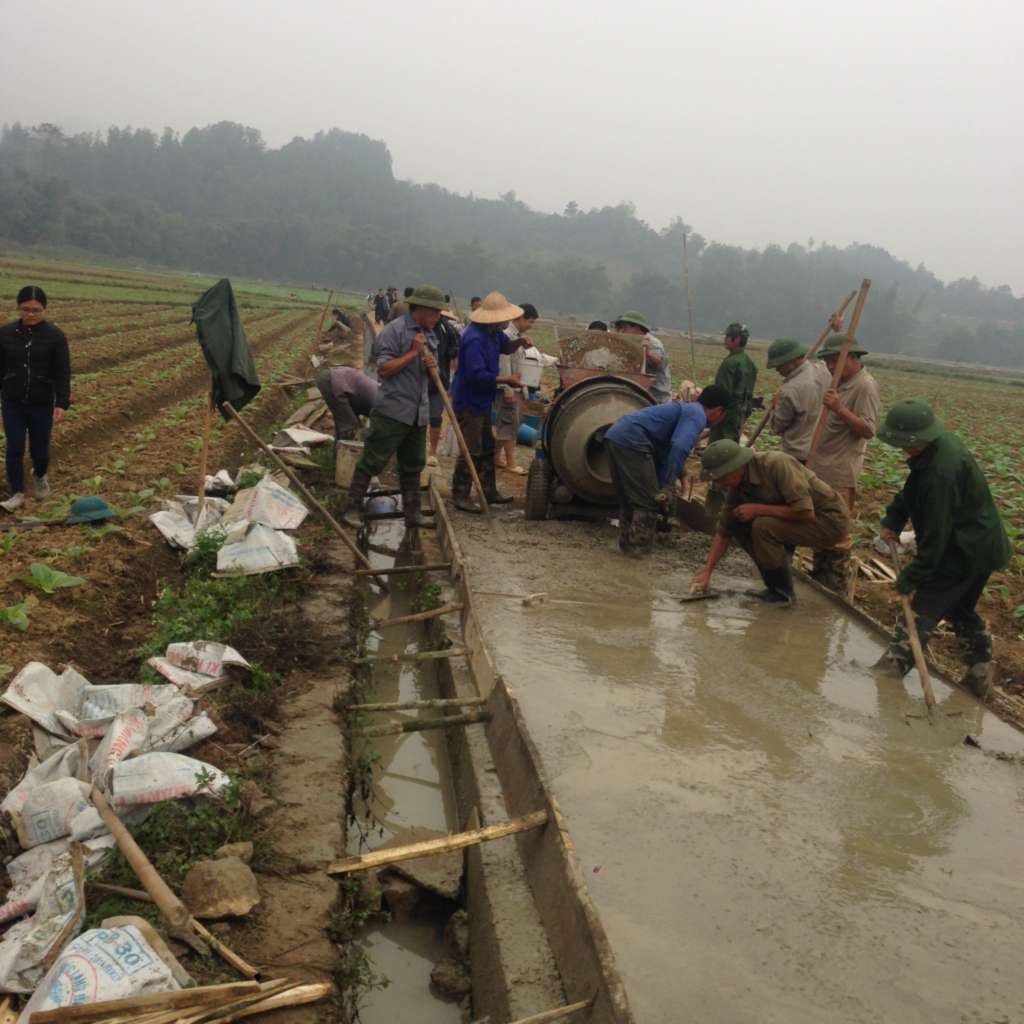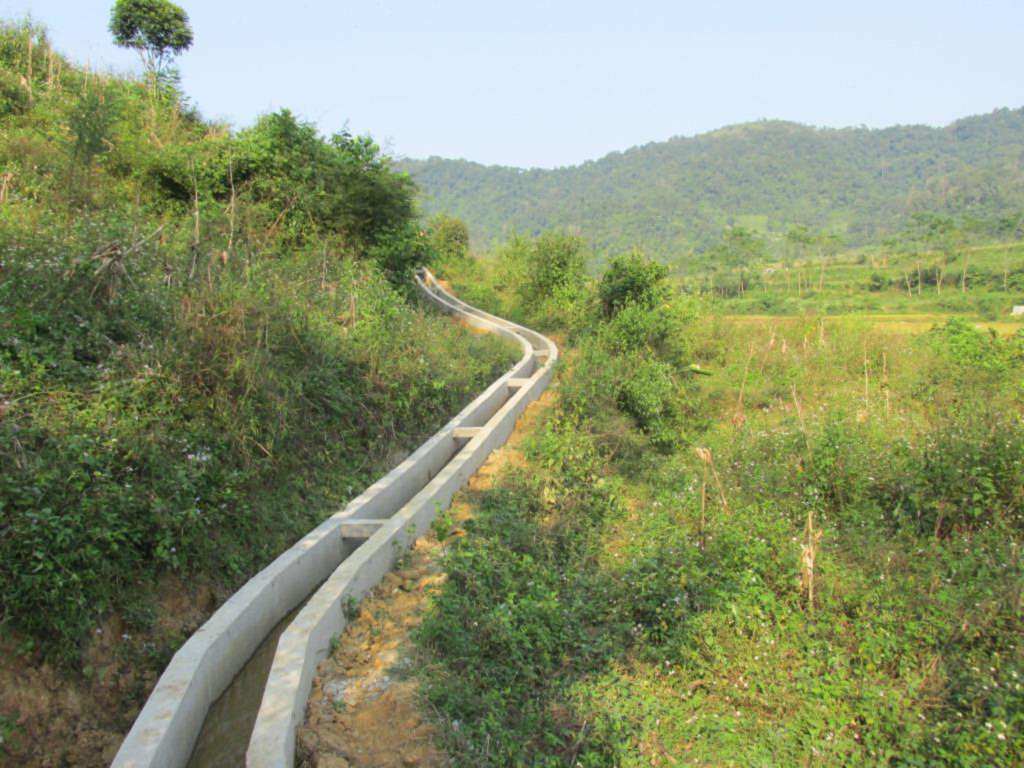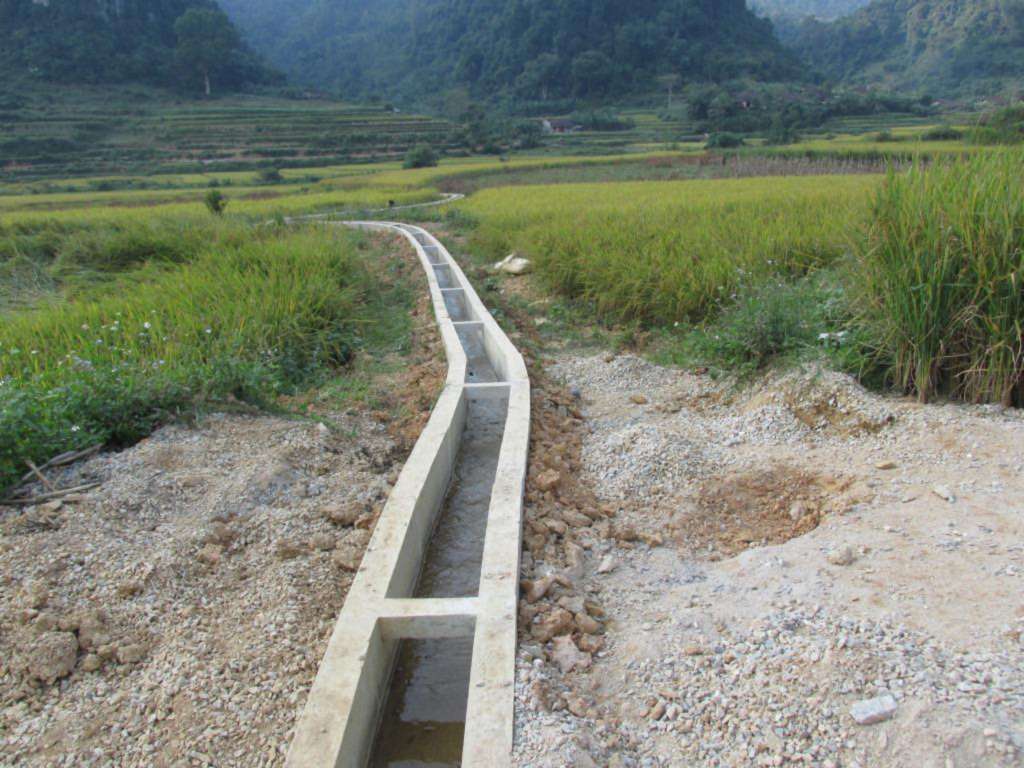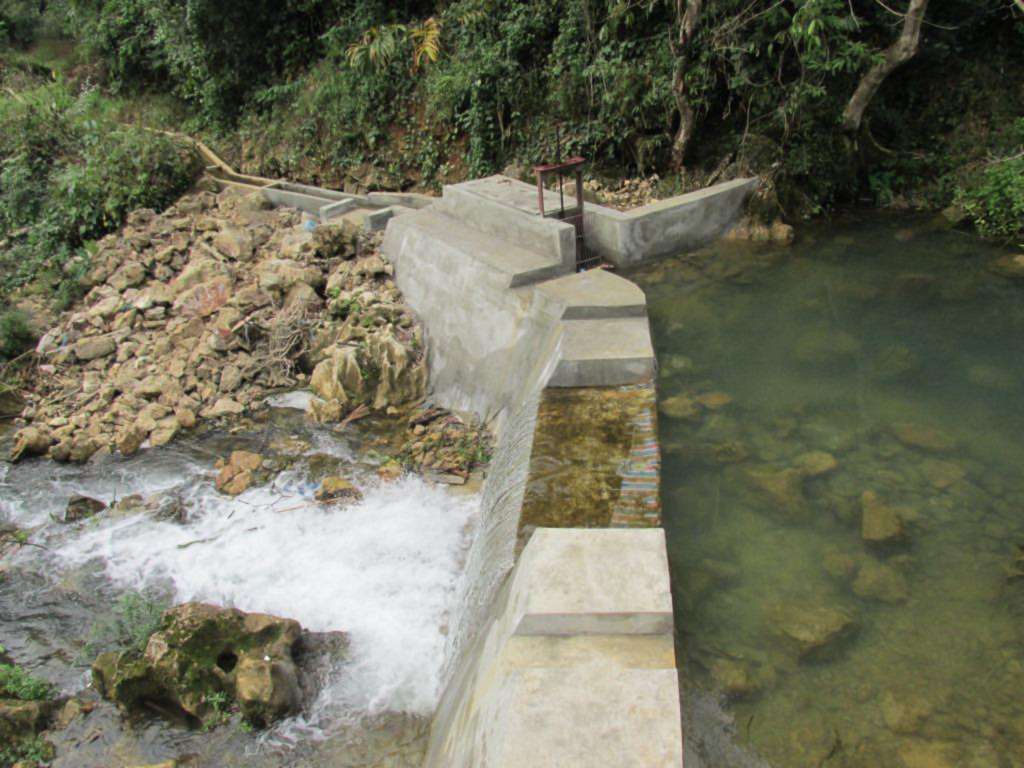Information
This project is closed since 30.09.2020.
- Country
- Vietnam
- LuxDev's Regional office
- Asia Office
- Partner execution agency
- Cao Bang Provincial People’s Committee
- PIC 3
- 2011 - 2015
- Implementation period
- 24 August 2015 - 30 September 2020
- Total duration
- 61 months
- Total budget
- 6,616,200 EUR
- Contribution breakdown
-
- Luxembourg Government
5,500,000 EUR - Government of Vietnam
1,116,200 EUR
Mid-term evaluation
Final evaluation

The project “Wise Use of Water and Agriculture” (WUWA) VIE/036 is the second Luxembourg project to support the Department of Agriculture and Rural Development (DARD) in Cao Bang province in the north of Vietnam following the successful implementation of the Nam Tuan irrigation project from 2006 to 2010.
The overall project objective is to assist sustainable trends of poverty reduction and food security in mountainous areas of Cao Bang province.
The specific objective of VIE/036 is to improve effective natural and financial resource management focused on agricultural production while meeting the needs of ethnic minorities and other population segments with difficulties.
The anticipated outcome of the project is threefold:
- improved and sustainable agriculture service delivery mechanisms in Cao Bang that are demand oriented linking farmers to markets and applying improved (optimised, diversified and more resilient) agricultural production systems with improved productivity;
- strengthened Commune local authorities providing efficient and effective participatory investments services for small-scale roads and irrigation thereby enabling farmers better access to markets and improved productivity from irrigation systems; and
- improved DARD lead irrigation development applying Participatory Irrigation Management principles in prioritisation, planning and design, investment monitoring and quality control, operation and maintenance optimising the available resources.
The project aims to contribute to sustainable trends of poverty reduction and food security in Cao Bang. This is expressed through a poverty rate target households reduction from 24% in 2012 to 14% by 2018; a drop in the number of households receiving food supplements from 200 to 20; doubling of the 2011 average household income of 400 USD by 2018 as well as helping 230 household exit the poverty classification.
The project supports the counterpart DARD in their endeavour to implement the Cao Bang Agricultural Restructuring Proposal (CARP) on three areas: i) safe agricultural products from Cao Bang, ii) market linkage, and iii) restructuring of the sector.
Since July 2015, the project has been focused on supporting divisions under DARD such as the Centre for Agriculture and Fisheries Extension (CAFÉ), Crops and Plant Protection Division (CPPD), Rural Development Division (RDD) to pilot innovations in terms of creating market linkages, market information, safe production processes, food certification, improved chemical usage, quality control providing the basis for restructuring and capacity development of the agricultural sector.
The project supports four communes through the provision of Commune Development Funds (CDF) for improvements in inter-village roads and small-scale irrigation works thereby strengthening commune capacity for participatory prioritisation, planning and implementation. The experience gained in developing the participatory approach will be formalised as to facilitate replication and capacity development in other communes to be applied as a provincial guideline for commune managed investments.
The project contributes to irrigation development through the improvements in :
- a DARD lead transparent prioritisation process for investment as to engage communities, commune and district local authorities, in assessment of conditions of schemes and economic analysis enhancing ownership and responsibilities for further development;
- construction management and quality control procedures.
Core actors being supported are the DARD units of Irrigation Division and the Construction Management Office.
All construction works are implemented by counterparts through delegation agreements thereby providing the opportunity for VIE/036 to contribute to capacity development of actors as based on assessment of performance as well as to improvements of systems and procedures.
Through support to the Fatherland Front Committee, a system of Commune Investment Supervision Boards is established as to monitor the efficiency and effectiveness of government infrastructure investments.
Other key features of WUWA are: linking tourism with agriculture development, supporting the province in policy development for the agricultural sector as well as improving service delivery by the province to the private sector aiming to improve on the Provincial Competitive Index and to make better use of the limited resources available to them.
Latest news
VIETNAM - Wise use of water and agriculture, assessment and resultsRetrospective of Intervention – How did we do?
According to the final evaluation team, the Wise use of water and agriculture project in Cao Bang province ,VIE/036, Viet Nam, has been successful in improving the livelihoods of rural people in three of the province’s districts. Over 57 000 people living in Cao Bang, Viet Nam’s northern mountains region that had the highest rate of poverty in the country, have benefited from the project.
Initially designed as irrigation improvement project, VIE/036 quickly evolved to widen its scope. Rehabilitation of the irrigation schemes has assisted farmers in better responding to climate change, but also it has allowed them to grow more profitable crops during the dry season and allowed to introduce a market-led agriculture featuring speciality Cao Bang crops.

Irrigation - Na Bo - Na Dong SISS - Duc Long commune © LuxDev
Community-based planning (involving both women and men, ethnic majorities and minorities) in the prioritising, planning and construction work, has been significant in the success of the small-scale infrastructure in the commune villages. The undeniable achievement of the project are small-scale roads that provide better access for community members to schools and health services and to agricultural traders and markets.

Road construction works © LuxDev
According to the head of the evaluation mission,
increased social and economic benefits that accrue to the rural communities from the construction of small-scale roads and upgrading irrigation schemes are an important lesson for other rural development projects in Viet Nam.
These have contributed to significant benefits for commune members and the reduction of poverty rates in the communes assisted by the project VIE/036.
VIE/036 has also demonstrated that rural development projects can be innovative and embrace higher level provincial stakeholders. Development of the Linking-the-Leaders initiative, with project’s support, has provided the Provincial People’s Committee with real time feedback on matters of concern to members of the provincial community and a platform for members of community to engage with the Cao Bang provincial leadership about issues that affect them directly.
Among the lessons learned, perhaps the most important one is that the project design should not be too fixed and ensure there is some flexibility to respond emerging opportunities and to better achieve the project’s objectives. VIE/036 is a perfect example of the benefits that the modifiable approach can bring.
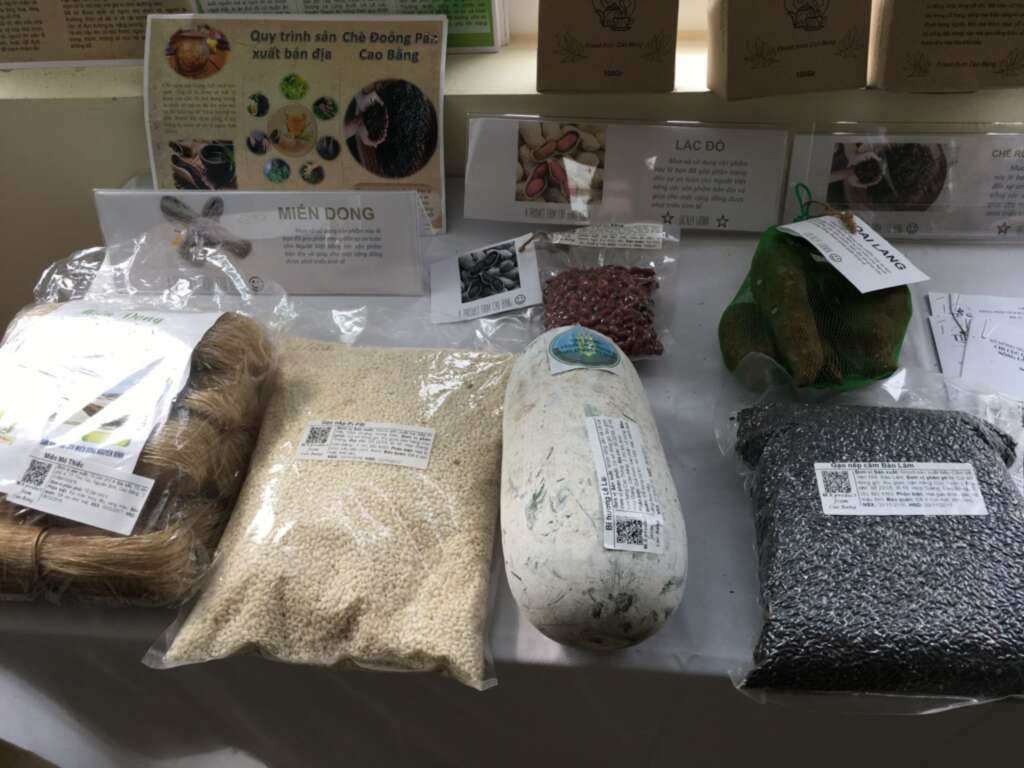
Cao Bang crops © LuxDev
Furthermore, it has been noted that for a better objectives’ achievement, provincial sector strategies need to be directly integrated into departmental and divisional annual workplans, with defined outputs, and accountability for delivery.
Moreover, the activities on departmental and provincial level that are aimed to improve the competitiveness index have proved to be effective for poverty reduction in both rural and urban communities.
Finally, a field for improvement is definitely the emphasis upon a “market-led” approach and the level of engagement with the agribusiness sector members: both need to be on a very high standard in order for agriculture restructuring programme to be fully successful.
The Wise Use of Water and Agriculture project in Cao Bang province, VIE/036, was co-financed by the Government of Vietnam and the Grand Duchy of Luxembourg and implemented by Cao Bang Provincial People’s Committee (PPC) / Department of Agriculture and Rural Development (DARD) and LuxDev, the Luxembourg Development Cooperation Agency.
VIETNAM - Successful participatory planning and implementation of small-scale infrastructure in Cao Bang
The project VIE/036 Wise Use of Water and Agriculture is working in Cao Bang province, situated in the North of Vietnam bordered with China. Cao Bang, has a population of around 500 000 people and about 85% of them live in the rural areas making a living through agricultural production. Although the province is one of the poorest in Vietnam it has a huge potential for agricultural development.

One of the challenges for farmers in Cao Bang is accessibility to production areas/markets and dilapidated irrigation systems. Many inter-village connections are still only mud tracks making it difficult to transport products and goods to and from farms while many irrigation schemes were constructed many years ago.
In mid-2016, the project VIE/036 started to work in four communes with the Commune Peoples Committee (CPCs) applying a Community Development Fund (CDF) approach. One of the key strengths in the work done by the local authorities is the participatory approach in identifying and prioritising the small-scale roads and irrigation systems that require improvements, responding to actual peoples’ needs.
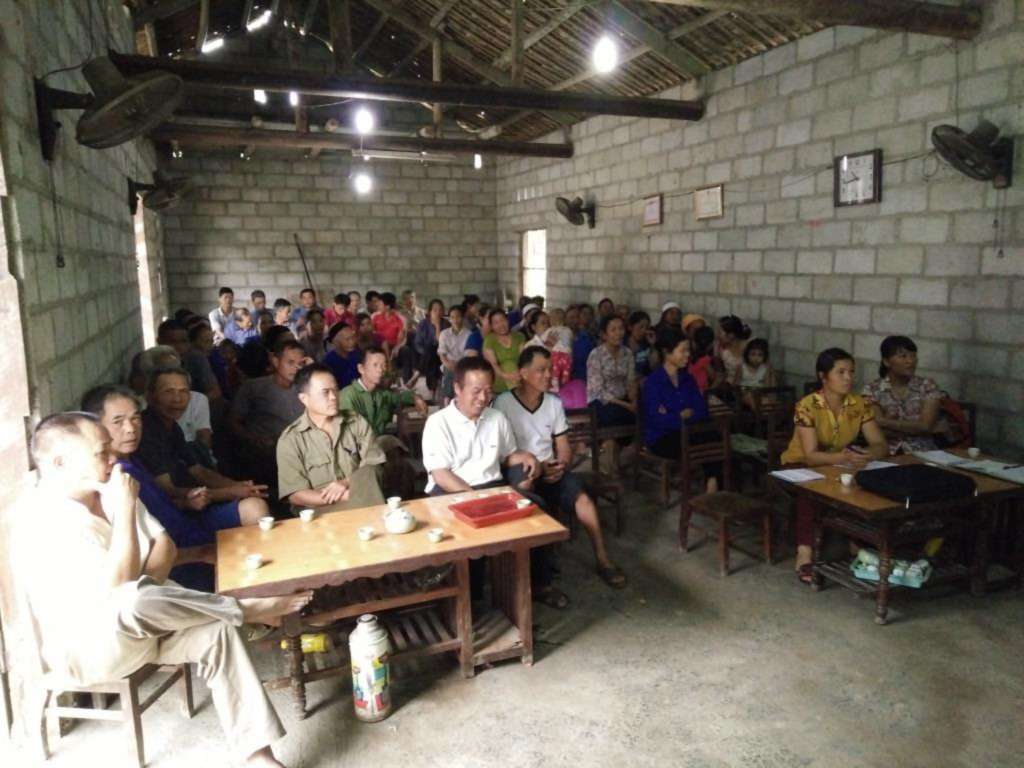
An equally high level of transparency is reached in survey, design, making “Bill of Quantities” and procurement of materials for road construction. The approach has led to a very high level of community participation in the construction of the roads, making this way of implementation is the most cost-effective manner as compared to government invested roads.
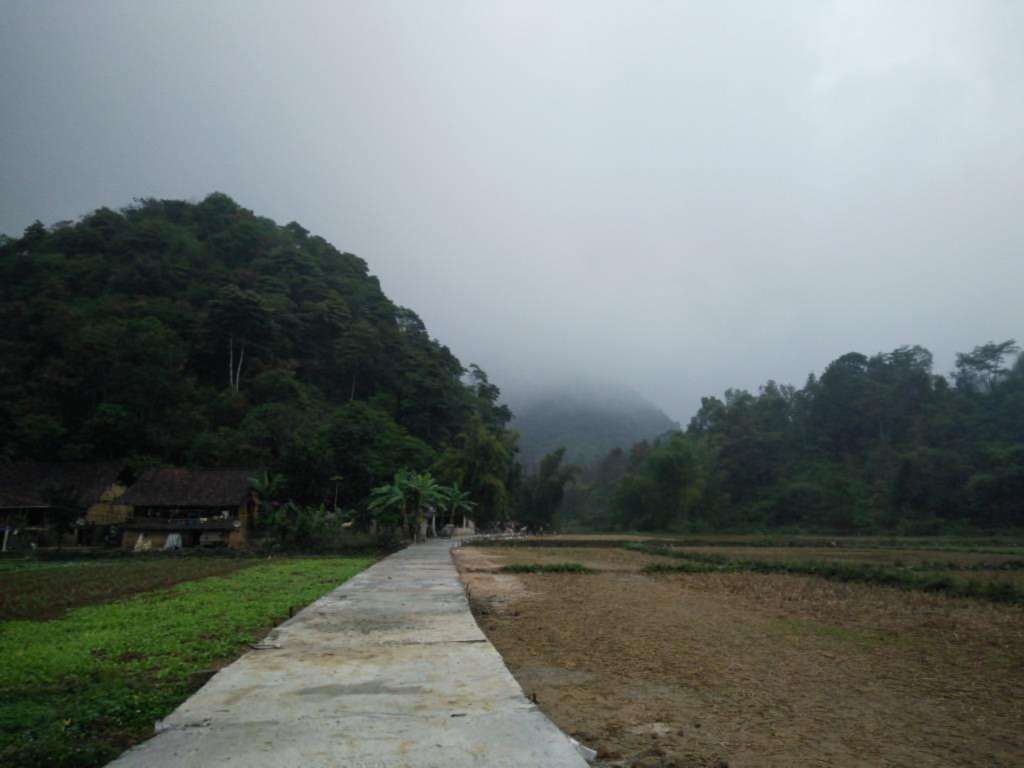
Based on the success of the CDF, the four CPCs started early 2017 to improve irrigation schemes (mainly canals) as well. Similarly a participatory prioritisation method was applied as to compare irrigation schemes and using economic indicators or cost-benefit analysis as to visualise where best to invest. The subsequent steps for developing designs, procurement of materials etc. are similar to the CDF component.
The Mid-term review, held in early 2018, confirmed the efficiency and effectiveness of the CPCs lead activities for small-scale infrastructure and recommended an increase in the number of communes. The direct responding to peoples need and short decision making processes are in contrast to the provincial level lead irrigation works. Delays in the decision making and procurement processes at provincial level facilitated the availability of extra funds for the CPCs for small-scale infrastructure. Hence, the project is able to provide 18 communes in Cao Bang funds for 2019 for both small-scale roads and irrigation development. This is providing a challenge for the District Offices who are to support the new communes in all the steps from prioritisation to implementation.
VIETNAM - The Wise Use of Water and Agriculture project promotes safe agricultural and specialty products and tourism development in Cao Bang province
The project VIE/036 Wise Use of Water and Agriculture supports Cao Bang province in its agricultural development. Agriculture in Cao Bang is characterised as small-scale and little developed.
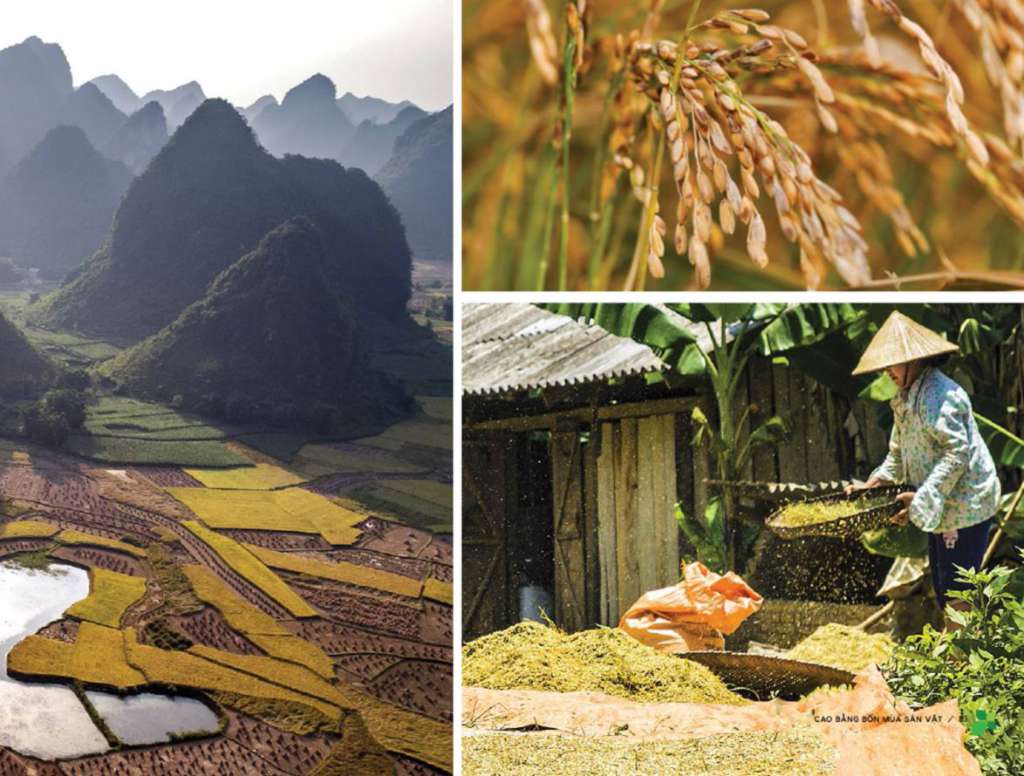
The potential of large-scale agricultural development is extremely limited due to the mountainous environment of Cao Bang. However, Cao Bang has great potential with regard to tourism development through its beautiful scenery and the potential exploitation of Cao Bang agriculture specialty products.
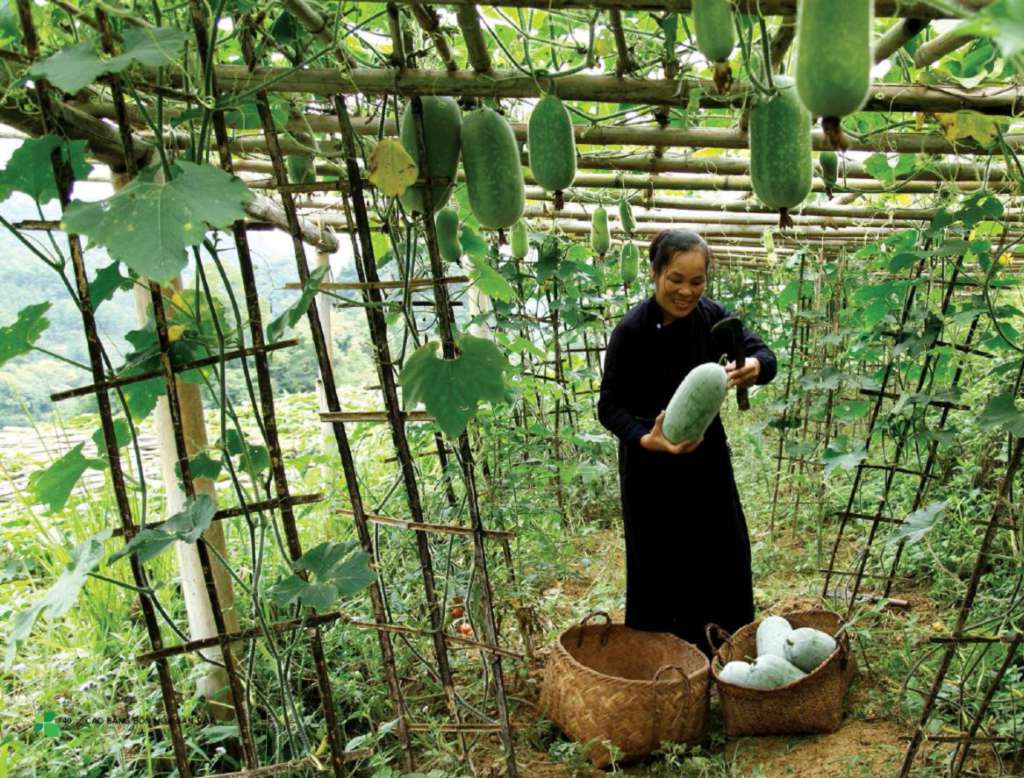
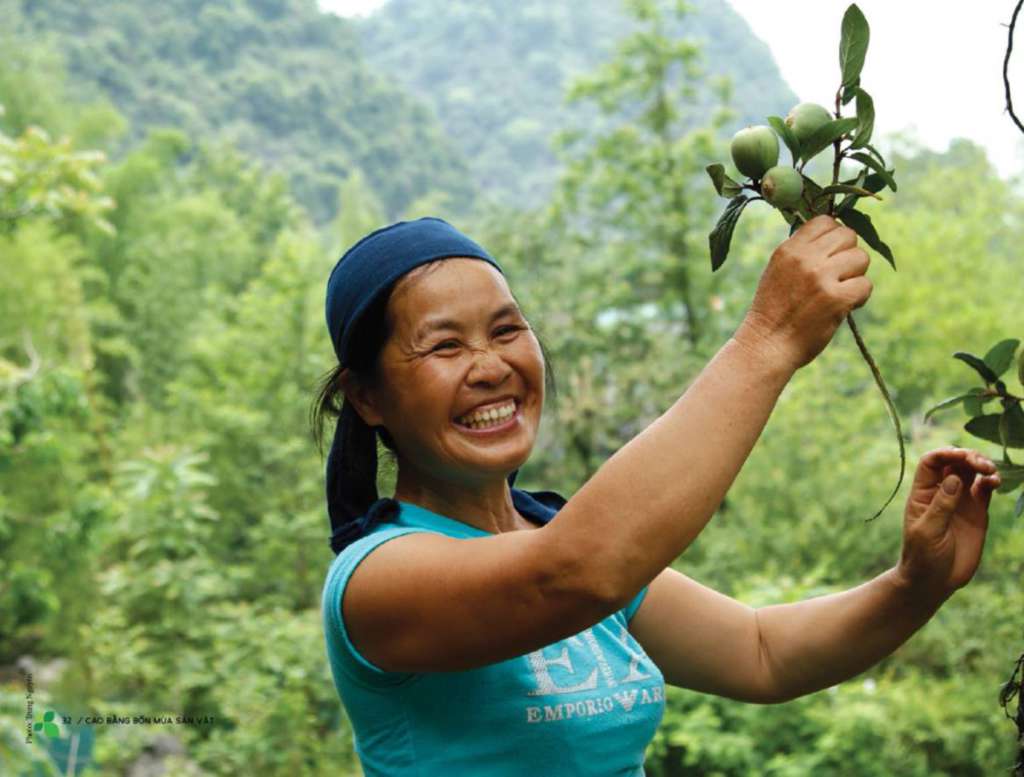
The project VIE/036 assisted in the production of a photobook on Cao Bang agriculture “four seasons” specialty products. The book provides information on 16 specialty products, four for each season, the locations where the products are produced, production and processing methods, natural environment, its people and culture.
It enables businesses who sell Cao Bang products to tell the story behind the products. The photobook is currently used by the Cao Bang provincial leadership to give to delegations visiting Cao Bang as a promotion tool.
On the 25th of November 2018, Cao Bang held an investment, trade and tourism promotion seminar. The guest of honour was the Prime Minister of Vietnam, Mr. Nguyễn Xuân Phúc.
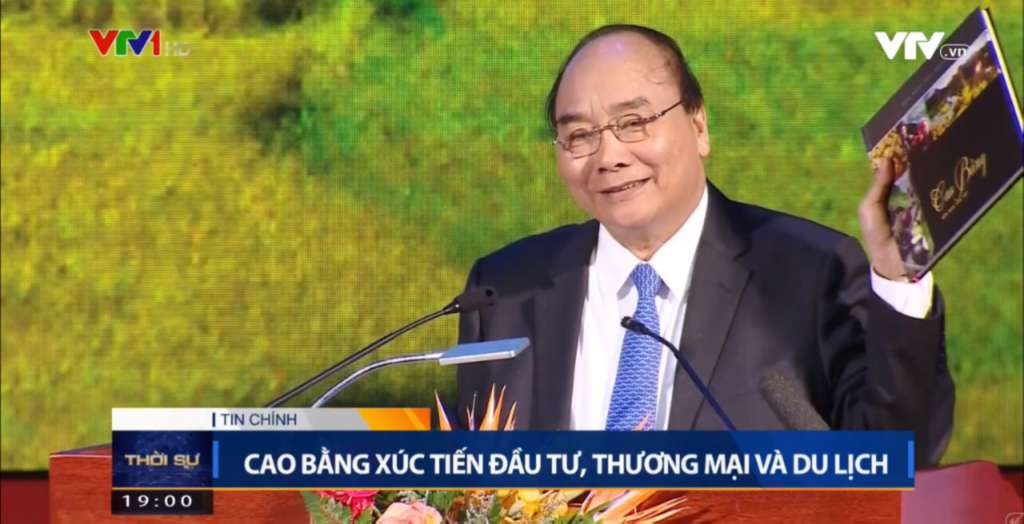 The prime minister of Vietnam with the book during his speech at the Cao Bang convention centre. In his speech Mr. Nguyễn Xuân Phúc highlighted the importance of market oriented safe agriculture products as a key strategy for economic development.
The prime minister of Vietnam with the book during his speech at the Cao Bang convention centre. In his speech Mr. Nguyễn Xuân Phúc highlighted the importance of market oriented safe agriculture products as a key strategy for economic development.During the promotion seminar, a video was shown, featuring two VIE/036 staff in the lead roles, promoting Cao Bang province as a tourist destination. The video can be found on YouTube through the link https://www.youtube.com/watch?v=RP-BPr6vQms&list=PL_v7cFsAMG-euu9agq9e9mPMp5Lno1GBE. An edited version of the video was used by Cao Bang in its successful promotion to have part of Cao Bang recognized as UNESCO heritage site.
Vietnam – How to identify and control crop diseasesTraining on Pest Control
In Cao Bang province, many farmers are unable to identify the symptoms when their crops such as rice, tobacco or maize show signs of diseases. Usually, it results in an inappropriate use of pesticides in terms of volume, type, time of spraying, etc. A considerable number of fields are badly affected and even destroyed by such misuse of pesticides, even more so since most of the pesticides are cheap imports from China, often unbranded and without comprehensible usage instructions. It goes without saying that such behaviour directly impacts the quality of the agriculture products, followed by a decreasing interest of consumers for locally-produced agricultural products. Via an information campaign, the provincial level requested producers to make better use of pesticides but the lack of skills to recognise the symptoms of crop diseases and using pesticides incorrectly is a real issue amongst farmers.
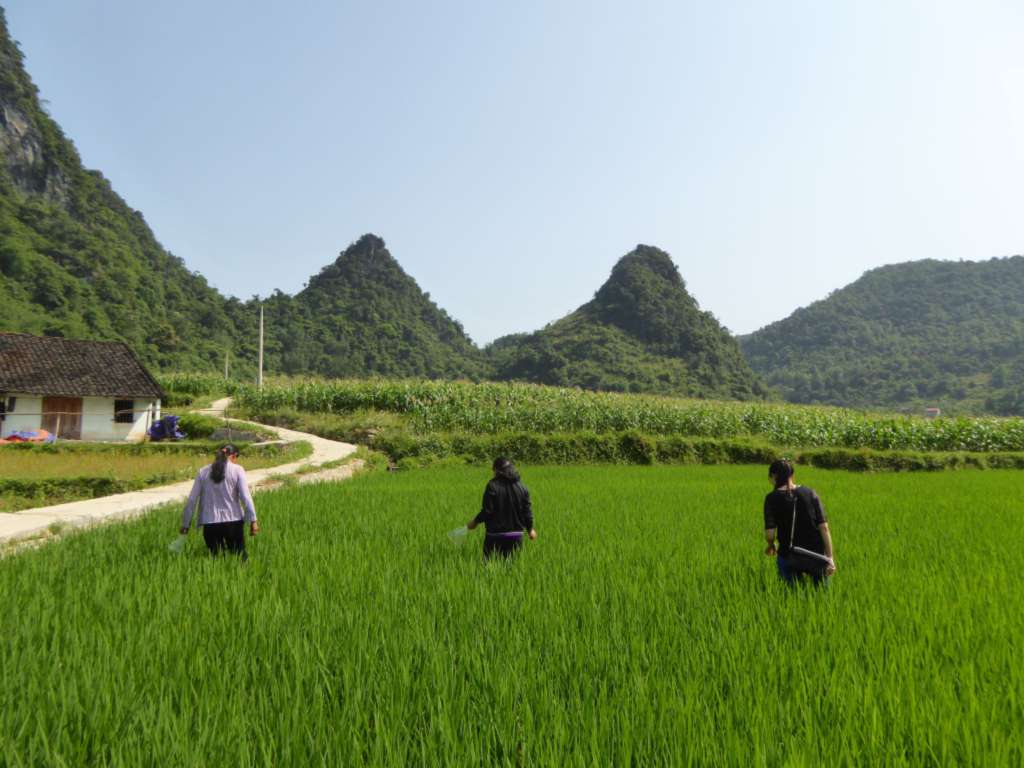
Therefore, trainings on techniques of identification and pest control measures provided by the Crop and Plant Protection Division (CPPD) supported by project VIE/036 were an efficient way to improve farmers’ skills in that respect.
The target beneficiary of these trainings were 125 farmers within Duc Xuan and Le Lai communes, in Thach An district, distributed among 5 villages, each class attended by 25 farmers.
Moreover, the trainings were an opportunity for the CPPD to develop their coaching approach while working with farmers in the fields. Also, those trainings were an opportunity for farmers to enjoy services provided by CPPD directly at their commune and to strengthen their confidence in proactively seeking technical support at CPPD offices when they are faced with any crop or plant issues.
Those trainings are the first batch of a series of activities in which CPPD will introduce an effective way to spray pesticides and at the same time to have a better understanding of the local situation and characteristics of farmers spraying pesticides in their field.
For seeking a suitable and relevant method to reduce the use of unbranded chemicals (mostly coming from China) while improving control over sales and purchases of Chinese pesticides, CPPD has collaborated with the Cao Bang Department of Police to undertake a study to assess the circulation and movement of unbranded chemicals.
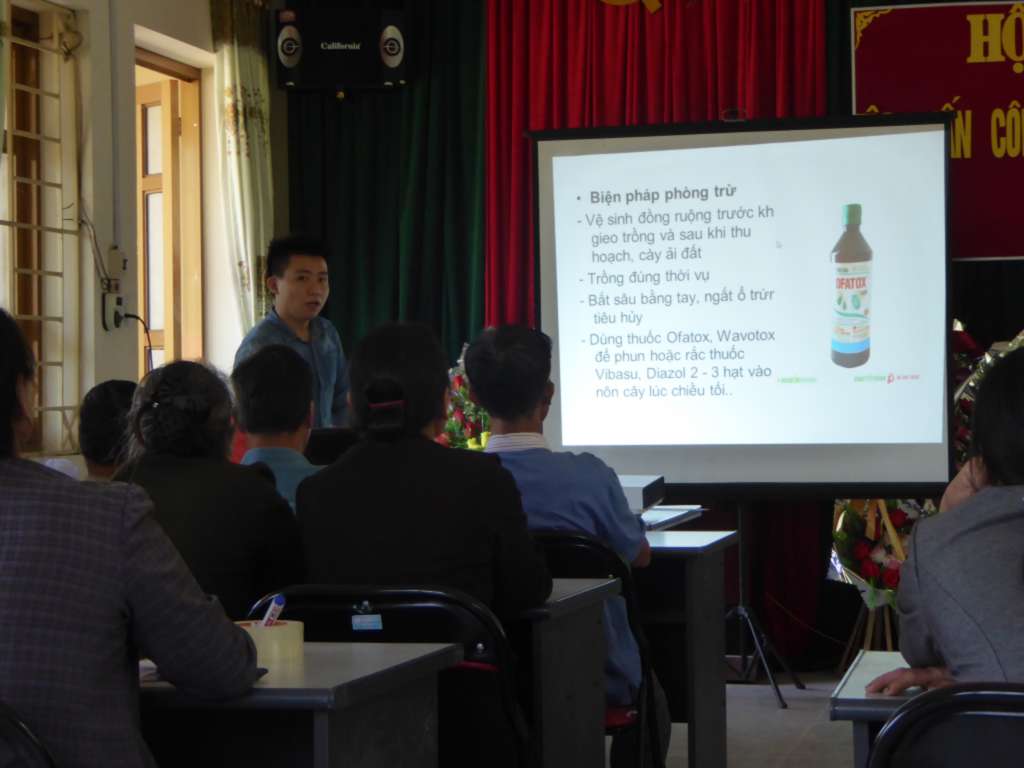
The CPPD also wishes to elaborate, propose and help farmers to apply at least 4 kinds of pesticide solutions that are responsive to the local characteristics and needs. At the same time CPPD will build its capacity to conduct studies on agricultural cultivating techniques for enriching a shared public knowledge library on agriculture practice for universal accessibility and inheritance.
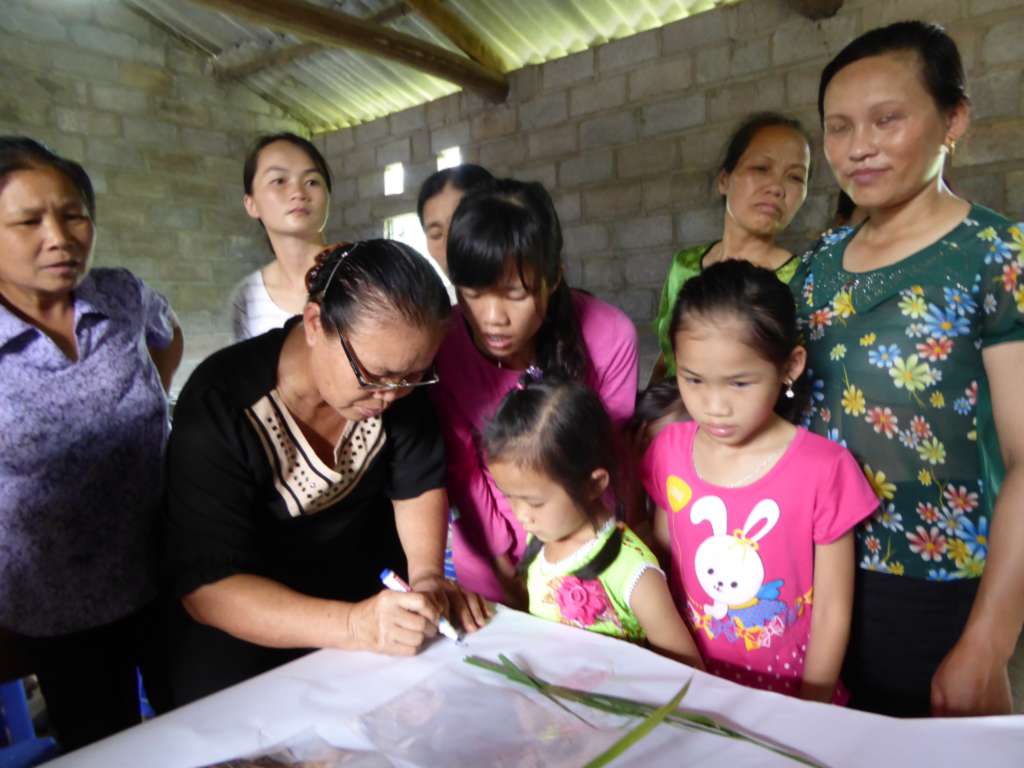
VIE/036 will certainly continue to provide support to CPPD and other agricultural departments to ultimately improve the agricultural production in the most sustainable manner.
